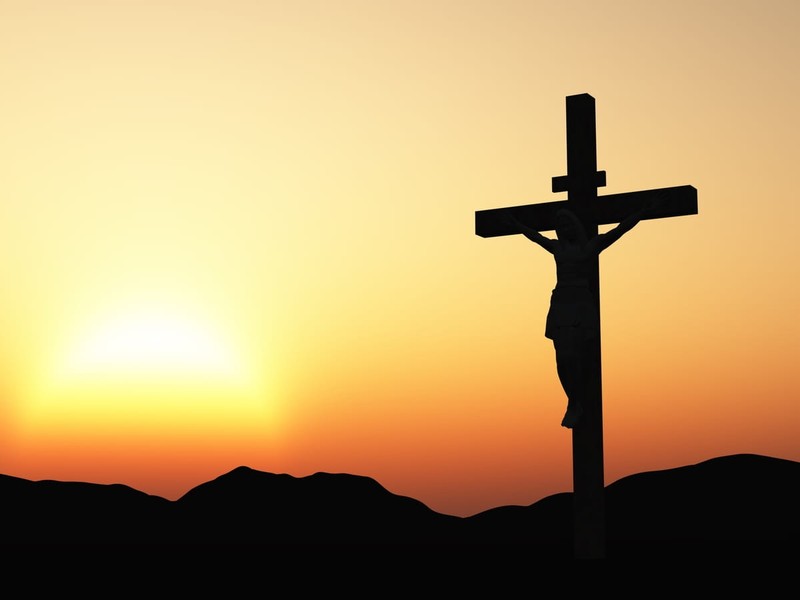I am a person of faith. I will die a person of faith. Here’s what I believe; a creed for you (no, not in Latin): I believe in Jesus Christ, his identity as God the Son, his life-giving and instructive teaching, his miracles, his sacrificial death for my sins and miraculous resurrection from the dead. I pray to God daily and to Jesus through the Holy Spirit, who Jesus has sent to dwell within me.
That may be an entirely unreadable statement of faith to some people. It would have been for me for almost 3 decades of my life. I know that until my late twenties, it was inconceivable I would ever have a “faith walk” like I have for the past 40 years. I always had kind a mushy idea that there was a god, and like many, I fashioned my own beliefs to accommodate my own opinions and wanton lifestyle (where “wanton” means I satisfied my desires first and foremost without much consideration of anyone or anything – except maybe the risk of being arrested).
Now people of faith like me often get married, have children and impact their families and people around them with their beliefs. Atheists do that too. I’d say that adults-in-faith don’t realize the true impact of their lives – both good and bad – until much later, after the children have grown and results of lives are on display. And “results” are truly not known for generations, as people mature and live as adults themselves, pass on their beliefs and world-view, etc.
Also in play is the impact of one’s generation upon one’s outlook and beliefs. There is virtually no generation that has failed to rebel in some way against the old order. Baby boomers like me did this as an art form, fueled by and in response to the events of the 1960s. See our anthems as penned by Bob Dylan and others. And it’s not that we, or any generation, have it completely wrong in our desire to reform what the old folks got wrong. There is ancient injustice and inherited cultural/institutional dysfunction and the awful damage it’s done. The problem is that that we (of any generation) fall into insufferable sanctimony, thinking the world began when we were born, or at least the “good world” as we form our utopia. We find new heroes, castigate previously hidden villains, define new identities and rewrite morality accordingly.
It is felt as no less than an explosion of repressed humanity. Even if the repression is imagined and a form of pity party, we are SO proud of what we now know, which no one ever knew before. I lived all that. Violently, at least in my life’s art and expressions, working out what was almost volcanic inside.
What I found, and I believe many find, is that 1) despite my proud proclamations, both the world and this life were a lot bigger than I knew, 2) my pursuits were destructive to myself and others because they were all about grabbing what I wanted as I found it and 3) it already didn’t end well and was going to end worse. I felt justifiably guilty. I hungered for something that transcended my life yet also gave it meaning and goals that were not based upon selfishness. And yeah, I found Jesus. That statement is so misunderstood that I need to explain.
I became acutely aware of my ongoing selfishness and its outcome. Unable to maintain relationships, I bounced around and took advantage of people. While I enjoyed the pleasures that small-scale notoriety provides, the emptiness, aimlessness and chronic loneliness was killing me emotionally, and I believe physically (at least over time). The Christian faith offered a) forgiveness with God and becomes outward forgiveness of myself and others which was very freeing, b) a way of life that ignored self only to find it again gloriously in giving to others, c) proof points that were both historically and spiritually experienced and discerned, where the latter type attracts skepticism among those relying only on reason and rigors of “science”, it is nonetheless common practice in home-grown spiritual belief systems and practices, d) ongoing and progressively intimate community and comfort among those of the same faith.
To best communicate all this to people of any faith persuasion and world-view, I feel I must briefly address 2 common distortions that are aspects of theology – and we all have a theology, even atheists. One point is that of God as judge over humanity. Jesus does not paint a pretty picture about the state and thus, the eternal inheritance of the human race. While humankind can point to technological advances, kindness and nurturing among people apart from any faith, Jesus claims the role of the Savior we all need. If any innovation constitutes a new way of destruction that becomes its first and most profitable application. And even with the best of motives, humans glorify and profit themselves to the exclusion of anything bigger than they are. As that progresses, God does not instantly judge people, but turns them over to their pursuits – granting free will and the consequences of actions.
One may disagree with those findings and call them too gloomy and negative, but there is a vital statement to be made. People people of faith are NOT the judge. They may act it, but indeed, they are the judged – part of the mess, only redeemed by the kindness and mercy of God. Some can fall into spiritual pride, and look down upon people who remind them of their former selves. This is immature and an anomaly – call it spiritual malpractice if you like. True faith in Christ is ALWAYS invitational, open and loving to anyone.
The other aspect is that of God’s heart of loving redemption, rescue and restoration. I heard H. David Edwards say it best – “God loves you just the way you are, but loves you way too much to leave you like that”. Applied to a life of addiction, destitution or depravity and it is easy to see as a dramatic expression of God’s never ending, unconditional love. It is no less dramatic and deep applied to any life. The call to repent can be taken as an offense, but allowing the searching of one’s inner person by the Holy Spirit (unless and until one experiences it, possibly a strange concept) reveals progressive work to be done in unwinding the effects of humanity’s mess on any life. This does NOT imply a state of perpetual guilt with groveling about or a mean and critical eye to find the next fault or shortcoming. It is done in an already-forgiven state, where love is the motive for both the pointing and the repentance.
It might seem like this entry has at least two topics, but truly there is one – my experience in channeling the generational explosion of repressed humanity into the best life one can have – one of faith and salvation in Jesus.





